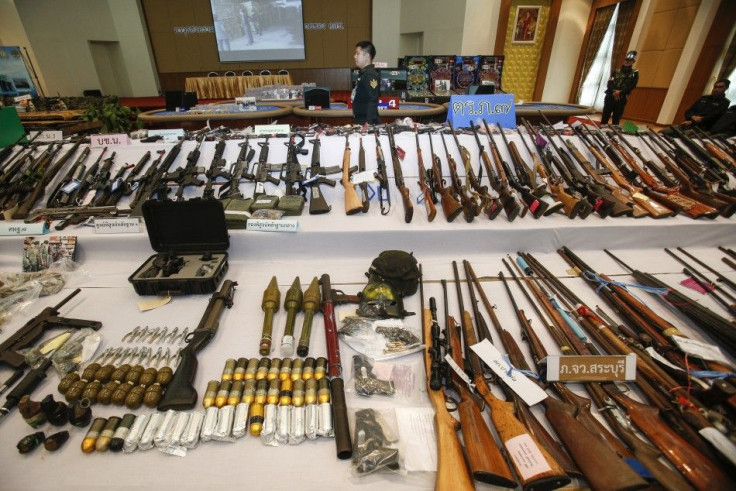Iraqi Corruption Has Enabled ISIS Access To U.S. Weapons

The radical and blood-hungry ISIS has gained access to weapons just recently supplied by the United States to Iraq, no thanks to the latter's corrupt military and police forces.
The New York Times, citing Col. Shaaban al-Obeidi of the internal security forces, reported Iraqi lawmakers, officers and soldiers had disclosed that some of the weapons the U.S. "recently" supplied to Iraq had been placed for sale on the black market to Islamic State fighters. Which now leaves one to ponder if the Pentagon should push through its plan of asking $1.3 billion in 2015 to purchase weapons for the government forces, while $24.1 million will be given to the tribal forces in the aim of defeating the militants.
Al-Obeidi, who is also a leader of a Sunni tribe on Anbar Province, asserted to the New York Times that the planned weapons distribution must not be given "through the army, not even one piece. He said his people 'will steal it' because 'corruption is everywhere.'"
Corruption among the ranks seemed to be an open secret. Lt Gen Rashid Fleih has been christened "chicken guy" because instead of sending the chickens to his troops so they can eat it, he sells them off somewhere. General Mahdi al-Gharawi has been given the moniker "General Deftar," after the Deftar, the local term for the 10,000 dinar bills he allegedly demands for selling promotions.
Iraqi soldiers had lamented they have been provided with cheaply made weapons and partial supplies, all because their higher ups skimmed off the savings so they can get kickbacks. "If each soldier is supposed to get 100 bullets, he will only get 50, and the officer will take and sell the rest," Al-Obeidi said.
The problem of corruption continues to be a sensitive matter in the ranks of Iraq's military and police forces. Prime Minister Hayder Abadi has ousted several officers for corruption and "unprofessionalism," still the problem remains.
The New York Times report said that Sunni tribal leaders have actually called on the U.S. to provide weapons directly to the tribes. But Shiite officials warned the U.S. against doing so because this would violate Iraqi sovereignty and aggravate divisions in the country.
"The United States is not the first player in Iraq. Iran is the first player in Iraq. They think Sunni fighters will be like militias for the Sunnis," Najim al Jabouri, a retired Iraqi army general, now a fellow at the National Defense University in Washington, told Jonathan Landay of McClatchy. "I think Iran is working very hard to stop the United States' strategy in Iraq."





















